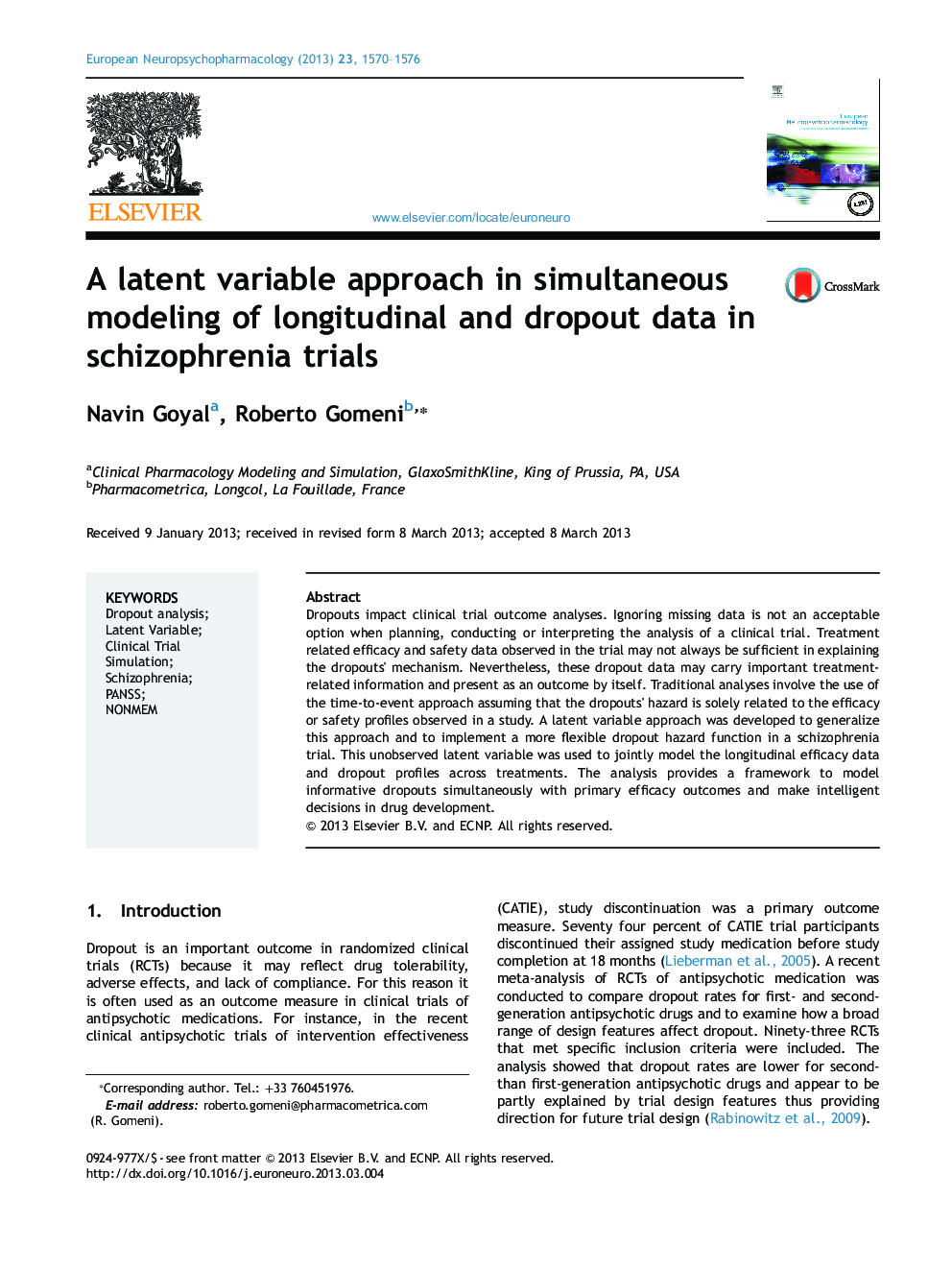| Article ID | Journal | Published Year | Pages | File Type |
|---|---|---|---|---|
| 10298145 | European Neuropsychopharmacology | 2013 | 7 Pages |
Abstract
Dropouts impact clinical trial outcome analyses. Ignoring missing data is not an acceptable option when planning, conducting or interpreting the analysis of a clinical trial. Treatment related efficacy and safety data observed in the trial may not always be sufficient in explaining the dropouts' mechanism. Nevertheless, these dropout data may carry important treatment-related information and present as an outcome by itself. Traditional analyses involve the use of the time-to-event approach assuming that the dropouts' hazard is solely related to the efficacy or safety profiles observed in a study. A latent variable approach was developed to generalize this approach and to implement a more flexible dropout hazard function in a schizophrenia trial. This unobserved latent variable was used to jointly model the longitudinal efficacy data and dropout profiles across treatments. The analysis provides a framework to model informative dropouts simultaneously with primary efficacy outcomes and make intelligent decisions in drug development.
Related Topics
Life Sciences
Neuroscience
Biological Psychiatry
Authors
Navin Goyal, Roberto Gomeni,
